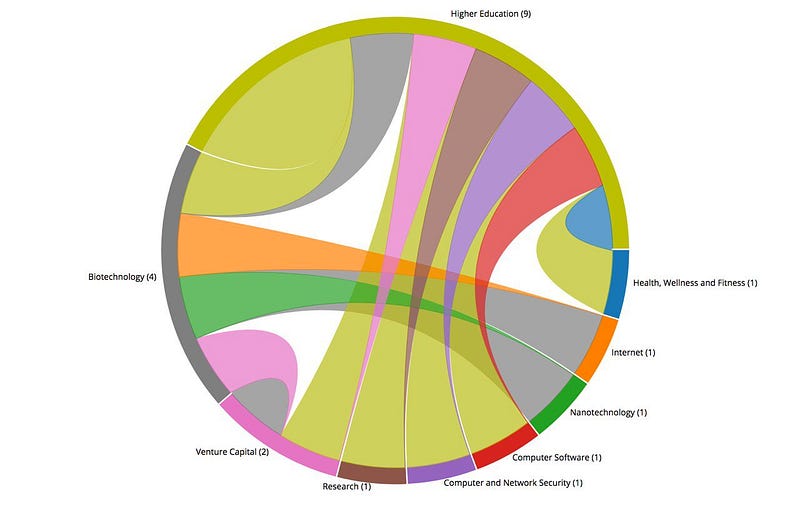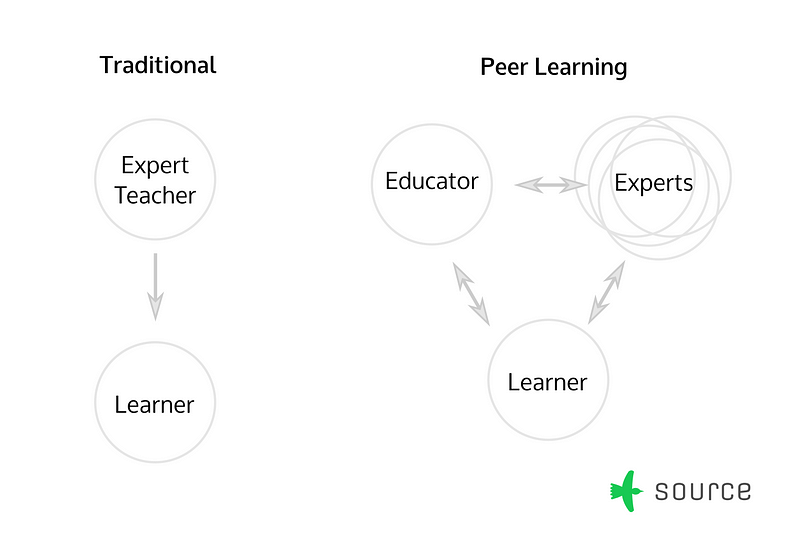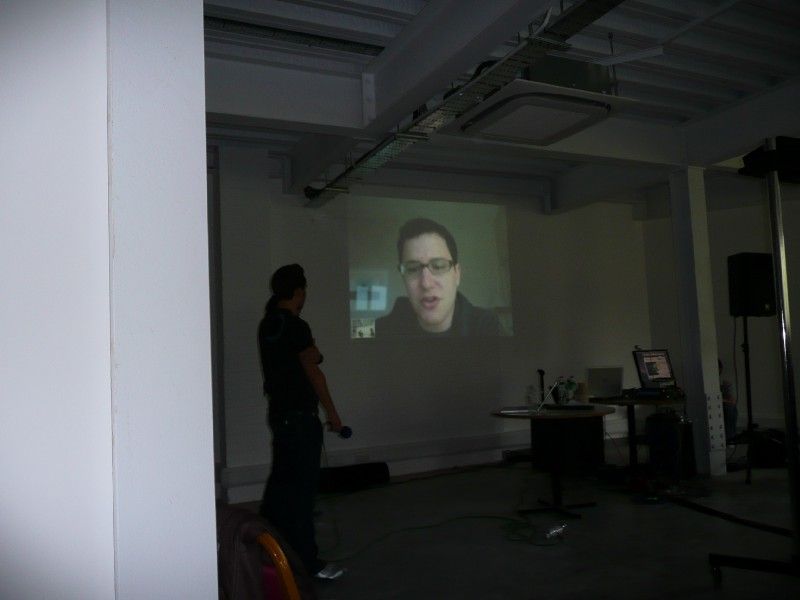Peer Learning is...
Defining Connectivity
Disciplines are specialising and intertwining at a faster pace, as are learners’ goals and challenges. Even where deep research and siloed knowledge are concerned, the nature of learning goals increasingly crosses formal boundaries.
Connectivity |ˈkɒnɛkˈtɪvɪti|
noun [mass noun]Access provided to specific knowledge sources, especially those beyond the learner’s network.
For learners to succeed on their own terms, they need to pick, choose, and connect sources - often spanning different subjects.
If learners are working on topics where established practice hasn't emerged yet, learners are unlikely to find a single source with a "right" answer. They need to learn from innovators and experimenters who aren’t necessarily authorities, and piece their answer together from various sources.

Increasingly, the most relevant experts for learners' needs are not strong educators - they often don’t have blogs, power point slides or even clear articulation skills. But they have wisdom and experience to share.
This inherently separates the educators' role from that of the domain expert. The educator is responsible to create an environment that connects learners to the people they need, and to facilitate their interaction with domain experts so the learner succeeds.

Connectivity is more than linking the learner to knowledge. It's about enabling the learner to leap over the constraints that keep them from the knowledge they need. These constraints are generally caused by either the lack of common language between knowledge disciplines, the lack of authority to position requests for knowledge in other networks, or by learners feeling unable to reach beyond their personal network.

At first, Connectivity means manually brokering connections. Based on learners' needs, research is conducted to find people with relevant experience or partial answers to the learners' challenges. This expands the learner's network.
Many education programs struggle with inviting experts as guest speakers or mentors. Getting expert involvement is an onerous act of making sure the expert can prepare, that it's worth their time, and convincing them to commit to the program schedule. Peer Learning formats make invitations easier, since experts don't need to prepare content nor need to commit their time without seeing their specific value.
At this stage, the distinction between learner and experts dissolves, as the educational institution now also caters to what the experts want to learn from each other.
This is decentralised Connectivity - the learners are able to make meaningful connections that jump directly to the most relevant sources of knowledge almost instantly.
Institutions develop a state-of-the-art reputation when learners are able to voice challenges that are compelling intellectual puzzles. The challenges posed by the community become opportunities for experts to open up new career paths, and develop craft. Educators act as curators now, orchestrating different groups to recognise the value of their different perspectives and to learn from each other.
The degrees to which Connectivity can be offered to learners are:
Level 0 : Unconnected. The only source of knowledge is the person standing at the front of the room.
Level 1 : Expanded. The education program provides relevant introductions beyond the learner's reach, mostly brokered through people involved with directly delivering the program.
Level 2 : Decentralised. The educational experience attracts a relevant and diverse group of domain expertise, so as needs emerge they can be addressed with seamless lead time, and under full directive of the learner.
